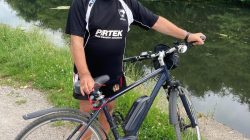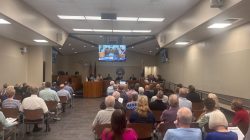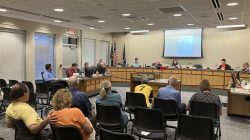A New Approach to Endometriosis Education
A groundbreaking education programme on endometriosis, created by a teacher and medical scientist, has already reached 14 schools across Ireland, with more set to join from September. This initiative aims to raise awareness and understanding of the condition among young people, particularly girls.
Endometriosis is a chronic condition that affects approximately 10% of girls and women globally. It is often referred to as the “missed disease” due to the long diagnostic process, which can take up to a decade. While there is no cure, various treatments can help manage symptoms effectively.
The condition occurs when tissue similar to the lining of the uterus grows outside the womb, commonly affecting the ovaries, fallopian tubes, and pelvic lining. This can lead to severe pain, especially during menstruation, and may impact fertility.
Cate O’Connor, a primary school teacher in Limerick, has been instrumental in delivering this programme. She noted that the response from secondary school students has been very positive. The sessions cover the basics of the menstrual cycle before moving on to discussions about endometriosis.
One of the key messages is helping students distinguish between normal discomfort and more serious distress. The goal is to present scientific information in an accessible and engaging way, making it easier for students to understand.
O’Connor highlighted the challenge posed by social media platforms like TikTok, where misinformation about reproductive health is prevalent. Many students encounter conflicting advice about contraception and its side effects, which can leave them confused when they seek medical help for period-related pain.
“The students are exposed to a lot of non-medically based information online,” she explained. “This can create confusion when they consult their doctors, who may offer different perspectives.”
Despite their personal experiences with endometriosis, O’Connor and her co-founder, Kathleen King, a HSE medical scientist, choose not to disclose their own conditions during the sessions. They believe that having external facilitators helps students feel more comfortable discussing sensitive topics.
“Some schools have mentioned that bringing in an outside expert can encourage more open conversations,” O’Connor said. “Students feel less embarrassed because they won’t see us again.”
The programme also aims to train more teachers, especially those involved in SPHE (Social, Personal, and Health Education) and PE. A PE teacher, concerned about girls dropping out of sports due to pain, has shown interest in collaborating.
O’Connor suggested that the Department of Education could play a role in expanding the programme. The initiative, called ‘MISE’ (Menstrual Information Specialising in Endometriosis), was inspired by New Zealand’s ‘What About Me’ programme. The name reflects the Irish word for ‘me,’ highlighting the personal nature of the condition.
Delivered voluntarily, the programme requires O’Connor and King to use annual leave to conduct sessions. Schools contribute €1 per student attending. Despite the time and effort involved, both find the work rewarding.
“It’s challenging to hear so many stories, but it’s worth it when students come up and ask thoughtful questions,” O’Connor said. “The hardest part is knowing that even though we empower them to talk to their doctors and families, they might still face delays in diagnosis and treatment.”
A new national endometriosis service is being rolled out, but the HSE has acknowledged difficulties in recruiting enough staff to meet demand. As the programme continues to grow, it offers hope for better awareness and support for those affected by endometriosis.







